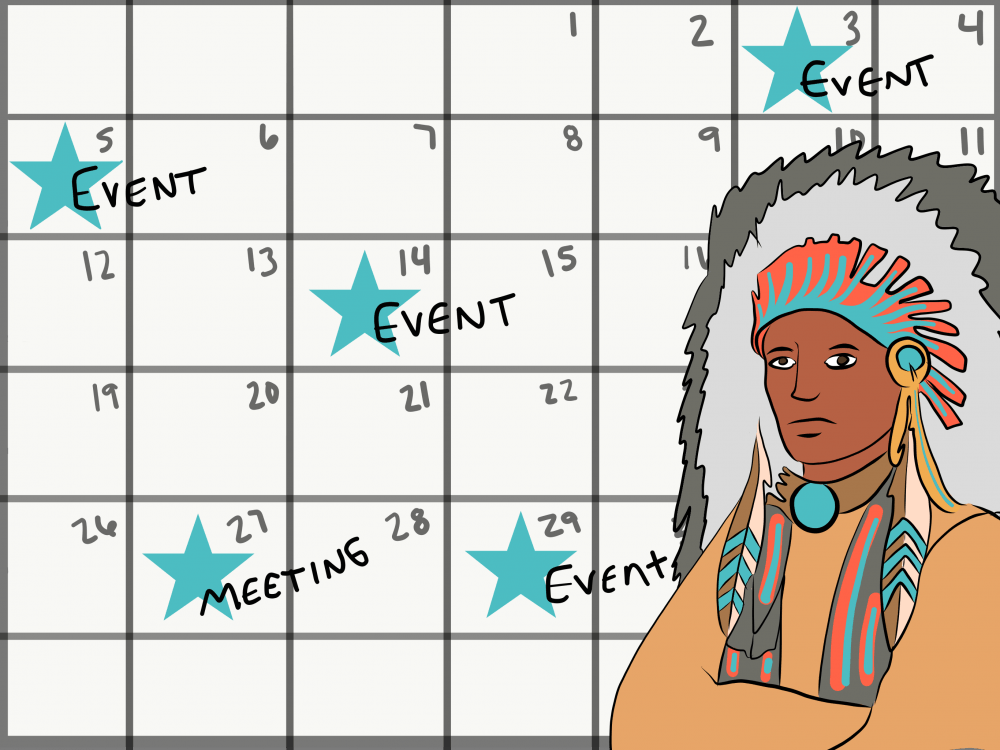ASU’s numerous Native American student organizations hope to bring awareness to the fact that November is a celebration of their culture as well as an insight into their way of life during Native American Heritage Month.
Groups will be hosting cultural events across the campuses and the Phoenix metropolitan area.
ASU’s American Indian Council and American Indian Graduate Student Association will be co-sponsoring the premiere of “More Than A Word,” a documentary that looks into the derogatory depictions and labeling of Native Americans used by American sports teams as well as the offensive traditions used by its fans.
Kayla DeVault, a graduate school student in American Indian Studies is a current member of both these organizations. She said it is alarming how few people are aware of the slurs used by popular American sports teams.
"People censor the n-word in publications, and I know some journalists have also adapted that censorship," DeVault said. "It is awesome to see that shift happening, but it is sad to see that it is not common knowledge."
The premiere will be taking place on Nov. 3 at the Phoenix Indian School Visitors Center.
DeVault she she also believes that non-Native Americans are both under-educated and miseducated about Native Americans and their history.
“They are under-informed in that they are not given enough opportunities to engage,” DeVault said. “People who even think that they are aware and engaged often still have no idea what they are talking about because there are still so many misconceptions and stereotypes and romanticizing of indigenous history."
DeVault said that school history books are partially to blame.
"My old high school teacher said that the curriculum is trying to be changed from the perspective of the oppressor and look it at from the view of the oppressed," DeVault said.
This opinion is shared among many of the Native American population.
Shaine Boyd, a junior studying health sciences who is Navajo, agrees with this sentiment.
She said American school books frequently cover early American history from the perspective of colonists.
Boyd said that many people, Native Americans included, still frequently use the term “Indian,” when it is a completely inaccurate term to describe Native Americans, all due to an error Christopher Columbus made over 500 years ago when he mistakenly thought he discovered India.
"Columbus came here thinking that this is India, which is why we are called Indians, but we are not Indians - we are natives to this land," Boyd said. “I prefer the term Native American or Native."
Boyd also said she has received negative stereotypes from others who often perceive that she has been handed benefits just because she is Native American.
Michael Begaye, director for American Indian Support Services, said there is large degree of general unawareness and misinformation surrounding the Native American community.
Begaye said that those who want to learn more about Native Americans can learn more if they invest more into researching the heritage.
Among the activities that AISSS will be presenting during Native American Heritage Month include Stich-N-Time at ASU Polytechnic and Resilience with Beads at both the ASU West and downtown Phoenix campuses.
Stich-N-Time features traditional Native American embroidery and needlework activities that use decorative design to relate to a event in a person's life, and will take place on Nov. 9.
Begaye said that each of these activities intend to tell a story about the Native American culture.
But he said that awareness of native issues should extent beyond just one moth.
"It is not something I just choose to participate in. It is a part of my life - it is everyday, 24/7," Begaye said. "While I think that Native American Heritage Month is beneficial, our lifestyle goes beyond a single day or month."
Reach the reporter at dgatalic@asu.edu and follow @danielgatalica on Twitter.
Like The State Press on Facebook and follow @statepress on Twitter.




